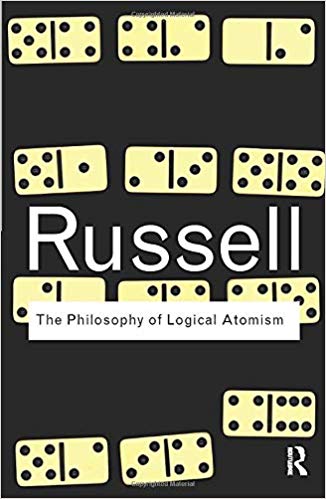W.B.C.S. Examination Notes On – Logical Atomism – Philosophy Notes.
WBCS পরীক্ষার নোট – যৌক্তিক পরমাণুবাদ – দর্শন নোট।
Russell’s choice of the words logical atomism to describe this viewpoint was, in fact, particularly apt. By the word logical Russell meant to sustain the position, described above, that through analysis—particularly with the aid of symbolic logic—the underlying logical structure of language can be revealed and that this disclosure, in turn, would show the fundamental structure of that which language is used to describe.Continue Reading W.B.C.S. Examination Notes On – Logical Atomism – Philosophy Notes.
By the word atomism Russell meant to emphasize the particulate nature of the results that his analyses and those of Wittgenstein seemed to yield.
On the linguistic level, the atoms in question are atomic propositions, the simplest statements that it is possible to make about the world; and on the level of what language talks about, the atoms are the simplest atomic facts, those expressible by atomic propositions. More complex propositions, called molecular propositions, are built up out of atomic propositions via the logical connectives—such as “… or …,” “… and …,” and “… not …”—and the truth-value of the molecular proposition is in each case a function of the truth-values of its component atomic propositions.
Language, then, must break down, upon analysis, into propositions that cannot be analyzed into any other simpler propositions; and, insofar as language mirrors reality, the world must then be composed of facts that are not constituted of other simpler facts. Atomic propositions themselves, however, are composed of strings of names that function, as Russell explained, in the strict logical sense; and atomic facts are composed of simple objects, the things that can thus be named.
The details of logical atomism have fascinated philosophers because of the way in which they not only formed a coherent whole but also seemed to follow inexorably from the doctrine’s central assumptions. There are close connections between logical atomism, which was perhaps the most metaphysical theory in contemporary analytic philosophy, and traditional empiricism. The decomposition of language and the world into atomic elements, for example, was a significant feature of the work of the classical empiricists Locke, Berkeley, and Hume.
The thesis that the structure of language mirrors the structure of reality has as a consequence that the meaning of a proposition is the particular fact to which it is isomorphic. This “picture theory” of meaning, as it came to be called, was adumbrated by Russell and stated explicitly in the Tractatus. Another theme of logical atomism is that the deductive sciences—mathematics and logic—are based solely on the way that language operates and cannot reveal any truths about the world, not even about a world of entities called numbers. Finally, logical atomism, in Wittgenstein’s thought as opposed to Russell’s, was at one and the same time metaphysical—in the sense of conveying via pure reasoning something about how the world is—and antimetaphysical. Wittgenstein’s Tractatus is unique in the history of empiricism in its acceptance of the fact that it is itself a piece of metaphysics, even though part of its metaphysics is that metaphysics is impossible: the Tractatus says of itself that what it says cannot be coherently said.
Only empirical science, according to Wittgenstein, can tell us anything about the world as it is. Yet the Tractatus apparently tells us about, for example, the relationship between language and the facts of the world. For Wittgenstein the solution of this apparent paradox lies in his distinction between what can be said and what can only be shown. There are certain things that can somehow be seen to be so—in particular, the ways in which language is connected with the world—though they cannot be straightforwardly stated. Although metaphysics is not strictly expressible in any language, the attempt to say metaphysical things, if done in the right way, can show what it cannot coherently express.
Please subscribe here to get all future updates on this post/page/category/website


 Toll Free 1800 572 9282
Toll Free 1800 572 9282  mailus@wbcsmadeeasy.in
mailus@wbcsmadeeasy.in



















































































































